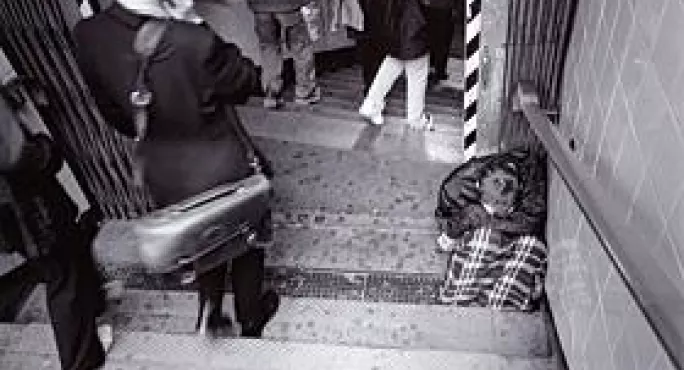Helping at-risk students find ‘place of safety’

When Surrey County Council decided to base youth workers and social workers in a college for a six-month pilot programme, they hoped to prevent at-risk students from dropping out.
But instead, in their first month at North East Surrey College of Technology (Nescot), they found a student who was in an “abusive grooming situation” and severely neglected at home. Her successful removal to what staff describe as “a place of safety” was one of the factors that led the council to continue the programme and extend it to other colleges.
Since the raising of the participation age was passed, Surrey has placed great emphasis on reducing its number of teenagers not in education, employment or training (Neet). Recently, it announced that it would fund free meals for students at colleges, since they are not paid for by central government.
“Young people who are Neet at 19, who haven’t really had an education beyond school, their life chances right up until they are 60 and beyond are much poorer,” said Garath Symonds, assistant director for young people. “They’re more likely to go to prison; they’re more likely to be on benefits; they die younger and have more health problems.”
Surrey is relatively wealthy, which meant it could afford to focus its support on its 1,000 or so Neet teenagers, among the lowest number in the country. “If we can’t do it in Surrey, where can we do it?” said Jacqueline Udy, director of learner services at Nescot.
The council had reorganised social services and youth support workers into multi-disciplinary teams, each responsible for part of the county. They were embedded into Nescot, which, as one of the main education institutions supporting poorer teenagers, was a vital place to prevent dropouts. “If a young person dropped out of Nescot, we would struggle to find them somewhere else; it’s a very inclusive college,” said Nicolas Charalambous, area manager for youth support services.
According to the college, the teenagers reacted positively to the presence of youth support workers. “We have found that learners build really strong relationships with the people who come in and talk to them,” Ms Udy said.
Among their first referrals was the girl they would learn was the target of sexual grooming. But it was the neglect that alerted college staff. “This girl was in an absolutely terrible situation,” Ms Udy said. “We referred her to Surrey because we felt she was being neglected. You can tell by the fact that they are unkempt or extremely thin. We just use what I call the mum’s sixth sense.”
Youth support workers were able to visit the girl at home and win her trust. Eventually, she was removed from the abusive situation and rehoused. In the meantime, Nescot offered exceptional support.
“We bought her breakfast every day; we took her swimming so she could have a shower; we bought her clothes. She had never been shopping before,” Ms Udy said. Through all of this, the girl was able to continue her studies.
“Both sides are respected and trusted, so if we say, `We are concerned about this, can you take a look?’ the local authority can go and knock on the door,” Ms Udy said. “They’re able to access social services databases and they realise if they have had contact in the past.”
In all, 80 per cent of the referred students completed their studies. Had they dropped out, the Neet figures for their age group in Surrey would have risen by a fifth, Nescot said. Some were referred because of the risk of suicide and given mental health support. Others were helped with drug problems. Mr Charalambous said the college paid for one homeless student who was rehoused miles from the college to travel to his classes by taxi.
All of this, which Ms Udy calls “corporate parenting”, can take a personal toll, however. “I sometimes go home on a Friday night and have trouble sleeping,” she said. “My husband says, `You can’t bring them all home.’ It’s hard to let go.”
Photo credit: Alamy
Original headline: Helping at-risk students to find `a place of safety’
Keep reading for just £1 per month
You've reached your limit of free articles this month. Subscribe for £1 per month for three months and get:
- Unlimited access to all Tes magazine content
- Exclusive subscriber-only stories
- Award-winning email newsletters


